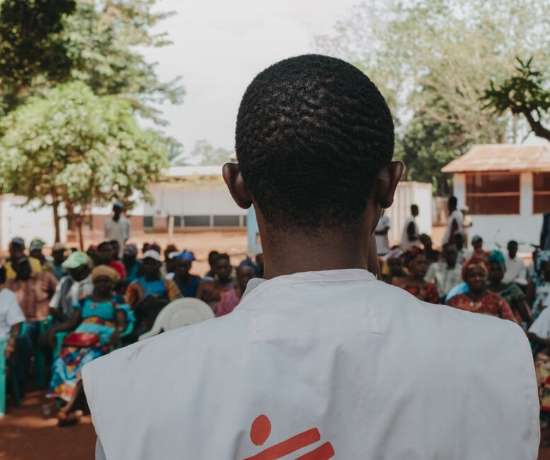Physicians Continue Medical Support in Haiti Amidst Persistent Violence.
Doctors Without Borders (MSF), an international humanitarian medical organization, has partially resumed its operations in Haiti’s capital, Port-au-Prince, after a temporary suspension due to escalating violence and direct threats against its staff. This decision comes amidst a severe humanitarian crisis in the city, where gang violence has crippled the healthcare system and left thousands in dire need of medical assistance. While MSF acknowledges the persistent dangers, the organization emphasizes the critical need to provide care to vulnerable populations. The resumption of services, however, is limited, with patient transport remaining suspended due to the high risk of attacks on ambulances.
The precarious security situation in Port-au-Prince forced MSF to suspend its activities in November following a series of violent incidents, including the fatal shooting of two patients. The organization’s decision to halt operations underscored the extreme levels of violence plaguing the city, where gangs control vast swathes of territory and regularly target civilians, healthcare workers, and even ambulances. The ongoing conflict has overwhelmed the already fragile healthcare infrastructure, leaving many residents without access to essential medical services. MSF’s temporary withdrawal highlighted the perilous conditions faced by humanitarian organizations operating in conflict zones and the difficult choices they must make to balance the imperative to provide aid with the safety of their personnel.
The partial resumption of MSF’s activities comes after constructive dialogue with key stakeholders, including Haitian authorities, who have pledged to ensure the safety and security of MSF’s teams and their medical mission. While this commitment offers a glimmer of hope, the organization acknowledges that significant risks remain, particularly for ambulance services, which are often targeted by armed groups. This persistent threat has forced MSF to continue its suspension of patient transport, severely limiting its ability to reach those most in need. The Turgeau hospital, one of MSF’s facilities in Port-au-Prince, also remains closed as its operation is contingent upon the safe transfer of patients to other facilities.
Three other hospitals and a clinic operated by MSF in the metropolitan area of Port-au-Prince have reopened, providing much-needed medical care to the local population. These facilities will offer a range of essential services, including treatment for injuries, illnesses, and chronic conditions. The reopening of these facilities underscores MSF’s commitment to providing healthcare to those caught in the crossfire of the ongoing conflict. However, the limited scope of the resumed operations highlights the ongoing challenges faced by MSF and other humanitarian organizations in delivering aid amidst persistent violence and insecurity. The organization remains vigilant and continues to assess the security situation, adapting its operations as needed to ensure the safety of its staff and the effectiveness of its medical mission.
The violence in Port-au-Prince has reached alarming levels in recent months, with clashes between rival gangs claiming hundreds of lives and displacing thousands more. Reports of targeted attacks against specific groups, including practitioners of voodoo, further underscore the brutality of the conflict and the vulnerability of civilians. The Haitian government has condemned these acts of violence, but its ability to restore order and security remains severely limited. The widespread insecurity has exacerbated an already dire humanitarian situation, with food shortages, displacement, and lack of access to healthcare becoming increasingly prevalent. International organizations like MSF are struggling to provide assistance amidst the chaos, highlighting the urgent need for a concerted effort to address the root causes of the violence and restore stability to the country.
The situation in Haiti is a tragic example of the devastating impact of protracted conflict on civilian populations and the challenges faced by humanitarian organizations striving to provide aid in such environments. The ongoing violence has not only claimed thousands of lives and disrupted essential services but has also created an atmosphere of fear and insecurity that permeates every aspect of life in Port-au-Prince. MSF’s partial resumption of activities is a testament to its commitment to providing medical care to those in need, even in the face of extreme danger. However, the organization’s ongoing concerns about security and the limitations on its operations highlight the urgent need for a comprehensive solution to the crisis, one that addresses the underlying causes of the violence and empowers local authorities to restore order and provide security for all citizens. The international community must step up its efforts to support Haiti in overcoming this crisis and building a more peaceful and prosperous future.
Share this content:












Post Comment